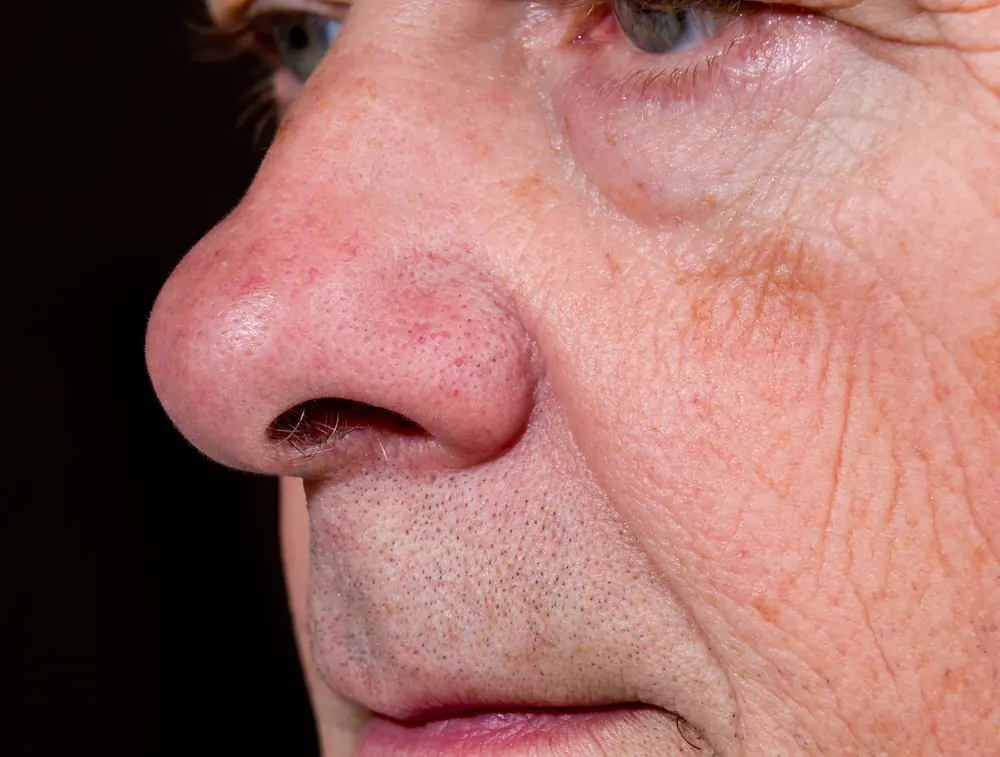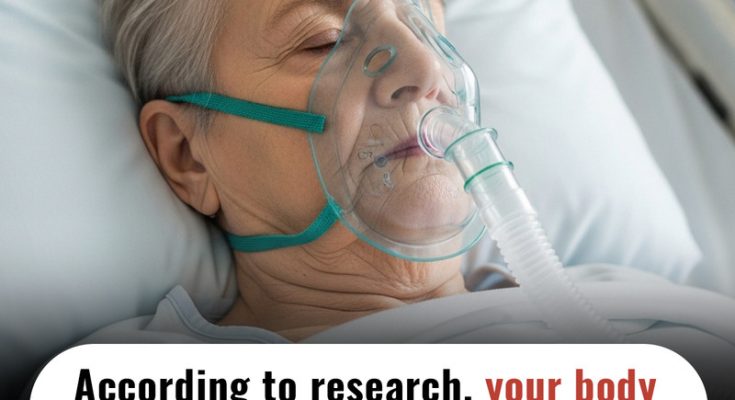The concept of death has fascinated humanity for centuries. Despite all the advancements in medicine and science, many aspects of death remain mysterious, often eluding complete understanding. However, recent research has begun to suggest that one of the human body’s senses, which we often take for granted, might hold crucial clues to the approach of death. Our sense of smell, long underappreciated in comparison to sight and hearing, may offer a window into not only predicting death in others but also understanding the decline in our own health.
Studies suggest that both the ability to smell death in others and the loss of smell in oneself could be tied to impending death. This research points to the fascinating link between our olfactory system and life’s final stages, opening up new discussions about how our bodies prepare for the end. Let’s explore the science behind this idea and what it could mean for both predicting death and understanding the early warning signs of significant health issues.
 Source: Shutterstock
Source: Shutterstock
The Ability to Smell Death: A Sixth Sense?
Our sense of smell has often been regarded as the underdog of the human senses. While sight and hearing dominate our day-to-day experiences, the nose is far more powerful than we realize, especially when it comes to sensing the approach of death. Numerous anecdotal stories share accounts of people who report experiencing a particular smell shortly before the death of a loved one. These stories suggest the possibility of a mysterious “sixth sense” that is tied to our olfactory system, allowing individuals to detect impending death.
But how could our nose detect death before it happens? One hypothesis is that as the body begins to shut down, it releases certain chemicals or odors that are imperceptible to most people, but that some individuals with a heightened sense of smell may detect. These chemicals could come from changes in bodily processes that accompany illness or the final stages of life. The idea is that, much like animals that can sense a storm before it happens, humans with heightened olfactory senses may detect subtle signals of death that others cannot.
Another theory suggests that the human olfactory system might be linked to emotional changes as a person’s health declines. As the body approaches death, the emotional state of those around us might also shift. People might begin to sense, consciously or unconsciously, that death is near through a change in scent or atmosphere. This connection between our emotional responses and the physical signals our bodies give off is still not fully understood, but it adds a layer of intrigue to our understanding of how the body processes the approach of death.
Animals and Their Ability to Predict Death
Interestingly, there are already documented cases of animals predicting the deaths of humans. Some animals, such as dogs and cats, have shown the ability to sense chemical changes in their owners. In studies conducted by the University of Chicago, scientists found that animals could detect diseases such as cancer in humans before medical tests could confirm the diagnosis. It’s possible that humans, in a similar way, could develop a heightened sense of smell that helps them detect changes in their environment—changes that signal the end of life for those around them.
Hospitals and long-term care facilities have reported that animals residing in these environments often exhibit behavior that indicates when a resident is nearing death. Cats and dogs living in such settings frequently become very still or behave unusually near a patient who is about to pass away. These behaviors, while anecdotal, have led many to wonder if there is something in our olfactory system that allows us to smell death, or at the very least, sense that something significant is about to happen.
Loss of Smell as a Predictor of Health Decline
While the ability to smell death in others is intriguing, the loss of one’s own sense of smell may be an even more reliable indicator of future health issues. Research has increasingly shown that a decline in the sense of smell can serve as a warning sign of several serious health conditions, including neurodegenerative diseases such as Parkinson’s and Alzheimer’s, and even cardiovascular and respiratory problems.
The connection between olfactory dysfunction and these diseases is still being studied, but evidence suggests that the olfactory system often begins to deteriorate before other, more obvious symptoms of these diseases appear. This could make the loss of smell a critical early warning sign, potentially allowing individuals to seek medical intervention before the disease progresses too far.
One notable study published in the Journal of the American Geriatrics Society found that older adults who experienced a significant decline in their sense of smell were more likely to die within five years compared to those who maintained their olfactory function. This raises the possibility that the sense of smell could serve as a valuable predictor of overall health and life expectancy.
Smell and Mortality Risk: What the Research Tells Us

Source: Shutterstock
The relationship between smell and mortality risk is a fascinating area of study. Declining olfactory function is now considered a potential risk factor for early mortality. A healthy sense of smell could signify a lower risk for various diseases, while a diminished sense of smell could indicate a higher risk for conditions that impact overall well-being and longevity.
Research in this field has focused on the changes that occur in the body as it nears death. For example, as the body ages or undergoes significant illness, changes in the composition of the air we breathe—such as the release of certain gases or chemicals—could be detected by those with a sensitive nose. Similarly, the olfactory system could play a role in alerting us to significant shifts in the body’s balance as it prepares for death, whether that involves changes in metabolism, immune function, or other internal processes.
The Future of Smell-Based Predictions: Early Detection Tools
As science continues to uncover new ways to monitor health, the potential for developing smell-based diagnostic tools becomes more apparent. If further research confirms the link between the sense of smell and various health conditions, we may be able to create tests or devices that harness the power of olfactory signals to detect diseases early. These tools could enable faster diagnosis and earlier intervention, improving outcomes for patients with conditions that may otherwise go undetected.
For example, scientists are exploring the idea of creating “electronic noses” that could detect specific odors in the breath or sweat of individuals, alerting them to diseases like cancer, diabetes, and even respiratory failure. These advances could revolutionize preventive medicine, giving individuals the opportunity to address health issues before they become life-threatening.
The Olfactory System’s Role in End-of-Life Symptoms
The role of the olfactory system extends beyond detecting disease and death—it also plays a critical role in how we experience end-of-life symptoms. Caregivers often report changes in a patient’s behavior, such as a sudden loss of interest in food or a decreased ability to smell. This loss of appetite and interest in life is a common symptom in the days and weeks leading up to death, and the sense of smell may play a role in this process.
In the final stages of life, the body begins to shut down, and the sensory systems, including smell, become less acute. For many people, a diminished ability to taste and smell is an indicator that the end is near. This shift often occurs alongside other physical and emotional changes, such as withdrawal from social interaction, increased fatigue, and changes in breathing patterns.
Conclusion: Harnessing the Power of Smell in Medicine
The idea that “the body knows when death is near, and it begins in your nose” is a captivating area of study, one that blends biology, psychology, and even spirituality. By better understanding the role of smell in predicting death, we could unlock new ways of predicting and preventing disease, ultimately enhancing both our understanding of life’s final stages and our ability to intervene before it’s too late.
As science continues to explore the connection between smell and health, it’s clear that our olfactory system has far more to teach us than we previously understood. Whether it’s sensing the approach of death in others or offering early warning signs of serious illness, the sense of smell is emerging as a powerful tool in the field of medicine. With further research, we may soon be able to harness this sensory power to improve health outcomes and quality of life, making the journey toward the end of life as dignified and comfortable as possible for all involved.



